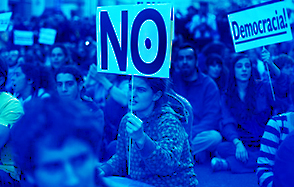


Conversion from Islam is impossible in many places and in the few locations where it is possible legally, there are social and cultural impediments to change.

Without careful and disciplined action, the church’s theology and practice of mission will be impoverished.

While India has always had a religiously plural ethos, contemporary India has been polarized along religious lines with the advent of the Hindu nationalist political party to power in 2014 with an absolute majority.

It is estimated that over 100 million people in the majority world base their livelihoods on locally mining gold, precious stones, and other high-value minerals with minimal equipment, capital, and training.

Today, we might comfortably discuss ministry by, even under, but especially from leaders with disabilities.

The Christian church is a global phenomenon, and mission is a worldwide endeavor.

A new generation of African younger leaders is rising to the challenge of missions.

This is God’s work, taking whispers from the margins and translating them for many to hear, speaking truth to power.

I will present a conceptual model. It was life-changing for me to discover it, and I have found that it clearly matches the biblical directives, as well as the fuller biblical narrative.

From 1995 to 2012, there were about 480 foreign entities working inside North Korea, of which 70 were Christian. Christian groups have operated in 85 counties in the country, meaning that some 60% have had some exposure to Christian organizations.

So as we look to the future, what should govern our aspirations? Perhaps Jesus’ models of salt and light in Matthew 5:13-16 could give us a framework.

The Hadith reports can take Muslims in many directions: to compassion for widows and orphans, to patriarchal attitudes towards women, to disdain for religious minorities, and to military jihad for the cause of Islam.

The basic place of meeting between Christian and Muslim is our shared regard for Jesus the Messiah; and the most fundamental point of difference is not the place of women or of violence, but who we believe the Messiah to be.

Nepal, Bhutan, and Myanmar have also enacted similar laws, with Nepal going so far as to include them in the recently adopted constitution.

One obvious implication is the age of retirement for ministers, elders, trustees, and others. Should leaders continue to retire at, say, 65, or as in a number of denominations, 70?

An evangelical emphasis on nurturing societies that encourage openness, tolerance, and diversity of religious expression should be seen as a benefit to all citizens and beneficial to mission and ministry globally.

The secular 1970s did not prepare Europe well for the religious vitality that would become all too apparent during the late 1990s and onwards.

“The churches in Syria, as they are in Iraq, are facing four main challenges amid the current regional crisis.” An article by a Syrian pastor.

The dominant ideology of today’s Europe: growth as our guarantee of existential security in the present and eschatological hope for the future. Christians have an extraordinary message of extraordinary hope at times of crisis.

The workplace may be the Holy Spirit’s greatest arena of evangelism and discipleship in the 21st century.

Las opiniones vertidas por nuestros colaboradores se realizan a nivel personal, pudiendo coincidir o no con la postura de la dirección de Protestante Digital.